Content
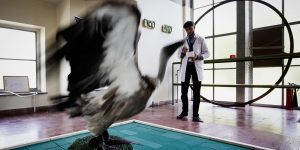
Earth Water Sky Artist Residency - Livestream
Haseeb Ahmed (US)
2020 Earth Water Sky artist in residence Haseeb Ahmed (Sky) will present his film “The Wind Egg” and discuss his body of work, notably on particulates and the particular narratives carried by the wind, which is also the subject of his residency at Science Gallery Venice. The presentation will be followed by a question and answer session open to the public, moderated by residency producer/curator Ariane Koek.

Cooperative Aesthetics
Students of the University of Art and Design Linz (AT)
For the third time, the Time-Based and Interactive Media Art department of the University of Art and Design Linz will be presenting 13 new projects on Cooperative Aesthetics in the Deep Space 8k as part of the Ars Electronica Festival. The works were created as part of the course “AEC Deep Space” under the direction of Prof. Gerhard Funk and assistant Prof. Holunder Heiss and enable the visitors to have a common audiovisual aesthetic experience. The interaction between all users, their communication and collaboration are essential.
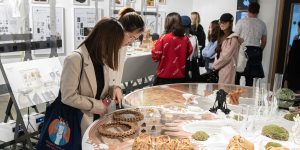
Bio-ID Hyperobject
The Bartlett School of Architecture, University College London (UK)
The main concept of the film is the creation of a design platform in form of a Hyperobject – a collection of things that overlap and intersect. It creates a system to visualise the systemic complexity of Bio-ID design research in an aesthetic and visually appealing way. The film project speculates with the idea of how data can become a visual object, a visual representation shaped into a navigational object.
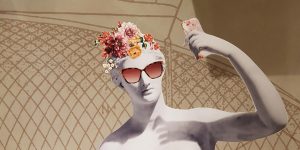
Exponential Mindset: The Skills of an Exponentialist
Niki Ernst, Eveline Wandl-Vogt
A 4-Sessions dive deep into the Exponential Mindset. An interaction series to consider the SDGs from an exponential growth strategies perspective.
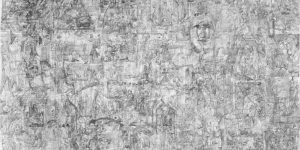
Creative Question Challenge: Quietly Subversive
Ciprian Mureșan (RO), Sanneke Stigter (NL), Corina Bucea (RO)
'Let us finish what we started'. This is how the UN introduces its first Sustainable Development Goal - to end poverty in all forms and dimensions by 2030. The 17 Sustainable Development Goals and their 169 targets have been described as a sprawling, misconceived mess of grandiose intentions. The title of the development agenda itself - 'Transforming our World' - oozes utopian ambition. It was adopted by 193 nations in 2015. Five years later and with ten years left, how do you think our world will transform?
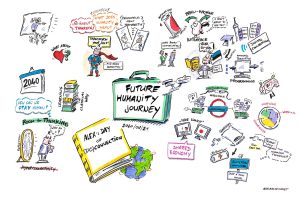
Future Humanity Journey
A day in 2040: what would our day look like in 20 years? Future Humanity Journey is an experimental workshop. Four innovators created a scenario of future humanity to better understand how humanity will develop and evolve.
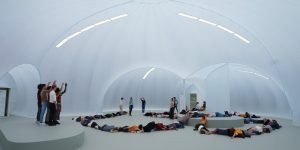
Creative Question Challenge: Embodied perception and life as movement
Alexandra Pirici (RO), Paco Calvo (ES), Corina Bucea (RO)
'Let us finish what we started'. This is how the UN introduces its first Sustainable Development Goal - to end poverty in all forms and dimensions by 2030. The 17 Sustainable Development Goals and their 169 targets have been described as a sprawling, misconceived mess of grandiose intentions. The title of the development agenda itself - 'Transforming our World' - oozes utopian ambition. It was adopted by 193 nations in 2015. Five years later and with ten years left, how do you think our world will transform?
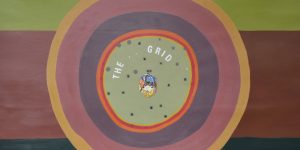
Community Creates Mobility: Participatory Speculative Critical Design beyond dream-making for the City.
Eveline Wandl-Vogt, Niki Ernst, Claudia Falkinger, Peter Zehetbauer, Wolfgang Preisinger, Elisabeth Füssl, Penesta Dika, Aleyda Rocha Sepulveda; lightning talk: Jeffrey Schnapp
Co-Envisioning Mobility Infrastructures - The challenges facing cities around the globe are complex and multidisciplinary by nature. Attempting to solve them in conventional linear ways is insufficient for addressing these manifold human-environment relationships that are at the heart of these challenges. Alternative approaches are necessary.
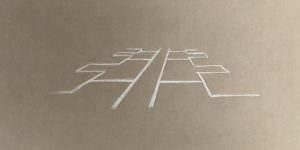
Affordances of spaces
Elena Cologni
Accelerating Knowledge for the SDGs: Life streamed session - The work developed from a two-year long investigation into ‘architectures of difference’, is based on a postcard in sculptor Barbara Hepworth’s collection (circa 1952), in a note she refers to this in terms of the space between people: it’s relational and social aspects. The piece also evolved from considering the punctuations found in our cities’ grounds, and how these contribute to developing a sense of attachment and belonging, which is at the basis of wellbeing (eg. Lived Dialectics, 2016, MuseumsQuartier, Vienna; Seeds of Attachment, 2016/18, New Hall Art Collection, Cambridge).
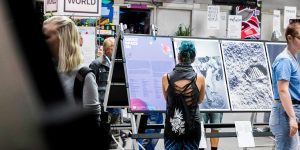
Step into Space Print at Home Exhibition
Become an exhibition designer and explore the fascination of space at the same time. Print the pdf Step into Space booklet on A4 and the pdf Step into Space Exhibition on A3. The booklet tells you how to do it.

Welcome to spaceEU Linz
Ars Electronica has a long history of working with space related content and narratives. The EU project spaceEU allowed them to open new collaborations on a European level. Together with eleven organizations, Ars Electronica developed and produced a wide range of space engagement activities addressing youth, families and teachers.
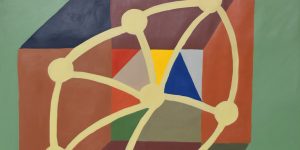
museum of knowledge science
Eveline Wandl-Vogt, Atiq Hashmi, Andreas Brandner, Louise Deininger
Virtual co-design session - Knowledge is at the heart of sustainable development. The achievement of the Sustainable Development Goals requires therefore effective knowledge management. However, knowledge needs to be understood in regional, societal, historic and cultural context. Art and culture are essential to the understanding of knowledge, specifically when knowledge - and its various aspects and processes - is reflected as a subject of art. Beyond reflecting knowledge, art is also a medium of knowledge, like articles or books.
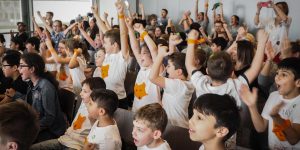
Mission X
Mission X is an international school class competition that has been in existence since 2011 and is held annually in over 25 countries worldwide. NASA and ESA have developed a series of exercises and lessons to teach space knowledge, exercise, sports and the importance of healthy eating in daily life.
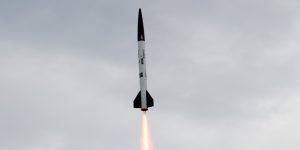
CanSat
Countless satellites orbit earth. They constantly provide new images and insights about our planet and move it into ever new perspectives. The view from above is the starting point for an interdisciplinary view of the Earth and the implementation of these themes in design lessons.
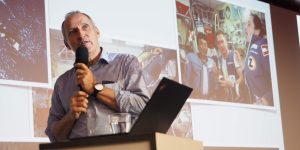
Worldviews of scientific consideration and creative (re)interpretation
Countless satellites orbit earth. They constantly provide new images and insights about our planet and move it into ever new perspectives. The view from above is the starting point for an interdisciplinary view of the Earth and the implementation of these themes in design lessons.
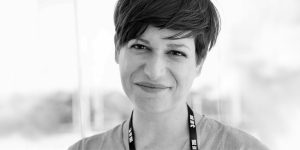
Key Note: Lorena Jaume Palasì
Founder of The Ethical Tech Society. Her research focuses on the ethics of digitalization and automation and, in this context, on questions of legal philosophy. 2017 Appointed by the Government of Spain in the Council of Eminent Persons on Artificial Intelligence. Former member of the High Level Expert Group on Artificial Intelligence of the EU Commission. 2018 Theodor Heuss Medal "for their contribution to a differentiated consideration of algorithms and their mechanisms of action" with the AlgorithmWatch initiative.
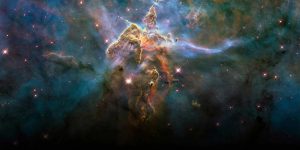
Best Of ESERO
ESERO Austria (AT)
ESERO (European Space Education Resource Office) is a project run by the European Space Agency (ESA) and education partners in various European countries to promote the interest of young people in scientific issues (MINT subjects in primary and secondary education). In order to achieve this goal, ESERO offers teachers a wide range of teaching materials and training programs. ESERO Austria has been active at the Ars Electronica Center Linz on behalf of ESA and FFG/BMK since 2016.
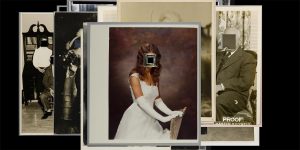
CURATORIAL A(I)GENTS
metaLAB (at) HARVARD
Eight experiments in the computational curation of collections - Curatorial A(i)gents consists in eight machine-learning-based experiments in and around museum collections and data sets developed by members and affiliates of metaLAB (at) Harvard, an idea foundry, knowledge-design lab, and production studio experimenting in the networked arts and humanities.
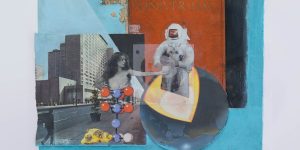
Algorithm Inventarium: methoda-thon
Matthew Battles, Max Haarich, Aleyda Rocha Sepulveda, Eveline Wandl-Vogt
Towards Inclusive, Sustainable Futures - The experimental "methodathon" is part of a series of “algorithm inventarium sprints” related to the project Algorithm Inventarium (AI+): diverse co-creation interventions combining action research approaches for accelerating the collaborative auditing of algorithms (e.g. by applying gamification techniques for data awareness, or auditing through interfaces). The aim of this session in connection with the ars electronica festival community is to identify, co-create and/or discuss specific methods, protocols and experiments for participatory research in the spirit of citizen science and community-based research in Vienna.
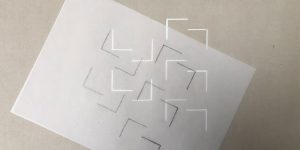
Algorithm Inventarium: The Greater Good Ethics Canvas
Eveline Wandl-Vogt, Henry Dobson, Max Haarich
Towards Responsible, Humane Technologies - In this interaction we are introducing the “Greater Good Ethics Canvas” to be used for the development of Humanity Centered Technology.


